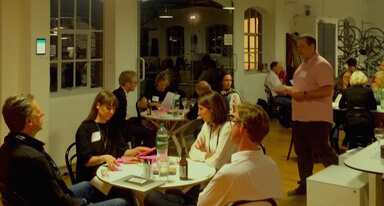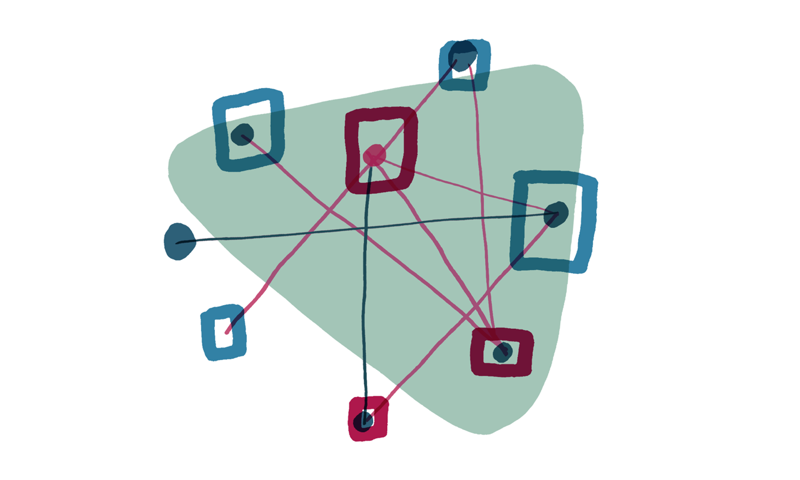Putting the “Well” Into Wellbeing at Work

Wellbeing in the workplace: it's a nice idea, and no doubt something many others are talking about in the wake of World Mental Health day.
For those of us lucky enough to work in organisations which know that people come before profit (because without the wellbeing of the former, there's little future for the latter), it's some way towards being a reality, a natural element of the daily ecosystem. For many others, it is little more than an ideal, or a wish that shrivels every day under the heat lamps of stress, insecurity, and uncomfortable furniture. We may be working more than ever, and perhaps working smarter than ever, but is our wellbeing at work as good as it could be? And while we're talking wellbeing, let's not forget that it's sometimes a euphemism for the altogether more difficult topic of mental health – a subject that's still, even in our supposedly enlightened and open times, wrapped in stigma and misunderstanding – never more so than in the workplace.

Our second gathering facilitated by the brilliant Simon Lamb
Part of our philosophy at Made by Many is another three-word epithet – People Matter Most – and that's one of the reasons why, with the help of some friends in the business community, and particularly an extraordinarily inspirational gentleman called Geoff McDonald, we recently began a new initiative looking precisely at the question of how we might improve mental health in the workplace.
Early in September, 20 or so of us gathered in our Islington office and spent the evening sharing thoughts, thinking of ideas, and trading skills. How can a commitment to mental and emotional wellbeing be not only communicated but also enacted in companies today? How can employees themselves collaborate openly on this most vital of twenty-first century business imperatives? How can we help in destigmatising mental and emotional wellbeing to the extent that no worker ever again feels so isolated as to be contemplating the end? In short, what can we, as a group and as individuals, do about it?
This topic is incredibly important not only because people are at the heart of business, but because mental health is itself a compelling business issue as well as a social and health issue. One in four people will suffer from mental health disorders within their lifetime, and the OECD reckon that mental illness costs the UK economy between £70bn and £100bn per year. Around 15 million days are lost to depression, anxiety and stress every year, according to the Labour Force Survey.
The conflab above (it was the second we've held) didn't feel much like “work": few things do when they are matched with the kind of spirit we felt around the tables that evening. Nevertheless, we have a big, ambitious vision – to make emotionally healthy and human workplaces where individuals can flourish and organisations prosper – and we like to think we have the beginnings of a working group, encompassing some deep and broad life and business experiences in fields including management, technology, healthcare, strategy, law, academia, communications, journalism, and more.
We want to make stuff happen, and we believe relatively small things gathered together have the potential for big impact: experimenting with the language around wellbeing in high-pressure environments, for example; thinking about where we can take developments in science and deploy them in new ways, forging connections between fledgling to fully-formed ideas: by joining the dots we can augment our efforts.
And since here at Made by Many we're technologists at heart, we know that while technology has had an enormous impact in many areas of our lives, it still really hasn’t had the impact one might expect in healthcare. We have the sense that mental healthcare is where there is huge potential for disruption and impact, particularly because of the challenges around both diagnostics and therapeutics. We believe the science is here. If we can figure out how to humanise it and digitise it in a way which sustains engagement then we have the chance to change things pretty significantly.
One other – admittedly rather obvious – idea we had that evening was “start and don’t stop talking to others”. And given this blog is a place to talk to others, let's finish this by saying two things. One: if you're interested in finding out more about this initiative or being involved, get in touch. And two: if all this sounds ambitious, we might ask what better ambition could we have than beginning to act in this area. After all, seventy five per cent of the economically active adult population in the UK are in what we know as the workforce. Work needs a place in which to happen – why shouldn't wellbeing be a key priority there; the most common definer of this common place?
We'll update more on the progress of this initiative over the coming weeks and months.
Continue reading
Coding for humans, developers and other animals: EpicFEL 2015
The world of front-end development is progressing so fast that it’s impossible to keep up.Or: Modern front-end development involves so many tools, framewo...
How (and why) we designed Hackaball to be Gender Neutral
This blog post has been adapted from presentations at GGMUK and Hyper Heat earlier this month. Following some recent Lovie Award wins in the Connected Pro...
Rendering images: When HTML is too much
I’ve been building a dashboard for my desk. It needs an E-ink screen and internet connectivity, and it turns out the best way to do this is with a hacked ...


